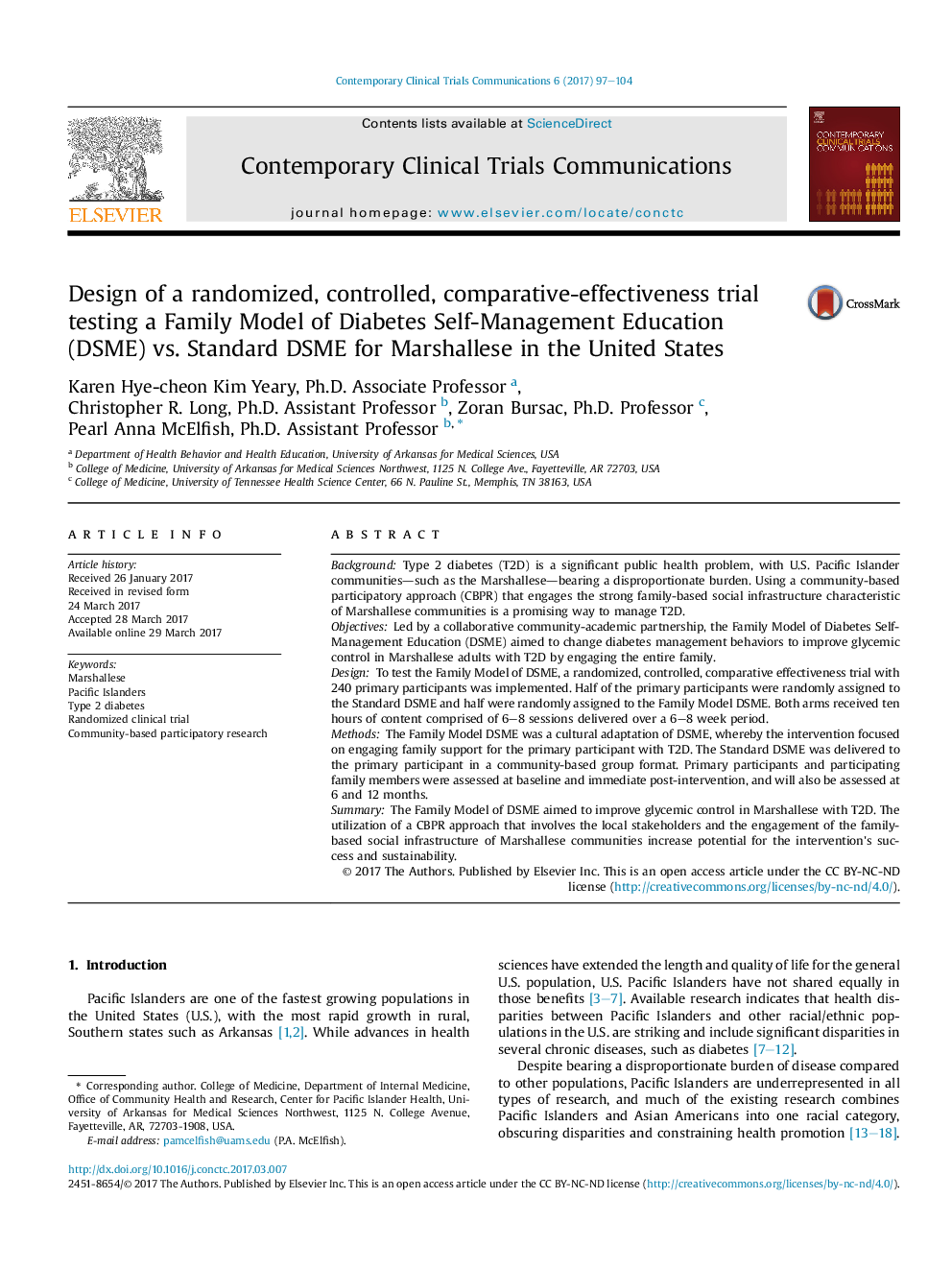| Article ID | Journal | Published Year | Pages | File Type |
|---|---|---|---|---|
| 5549678 | Contemporary Clinical Trials Communications | 2017 | 8 Pages |
BackgroundType 2 diabetes (T2D) is a significant public health problem, with U.S. Pacific Islander communities-such as the Marshallese-bearing a disproportionate burden. Using a community-based participatory approach (CBPR) that engages the strong family-based social infrastructure characteristic of Marshallese communities is a promising way to manage T2D.ObjectivesLed by a collaborative community-academic partnership, the Family Model of Diabetes Self-Management Education (DSME) aimed to change diabetes management behaviors to improve glycemic control in Marshallese adults with T2D by engaging the entire family.DesignTo test the Family Model of DSME, a randomized, controlled, comparative effectiveness trial with 240 primary participants was implemented. Half of the primary participants were randomly assigned to the Standard DSME and half were randomly assigned to the Family Model DSME. Both arms received ten hours of content comprised of 6-8 sessions delivered over a 6-8 week period.MethodsThe Family Model DSME was a cultural adaptation of DSME, whereby the intervention focused on engaging family support for the primary participant with T2D. The Standard DSME was delivered to the primary participant in a community-based group format. Primary participants and participating family members were assessed at baseline and immediate post-intervention, and will also be assessed at 6 and 12 months.SummaryThe Family Model of DSME aimed to improve glycemic control in Marshallese with T2D. The utilization of a CBPR approach that involves the local stakeholders and the engagement of the family-based social infrastructure of Marshallese communities increase potential for the intervention's success and sustainability.
